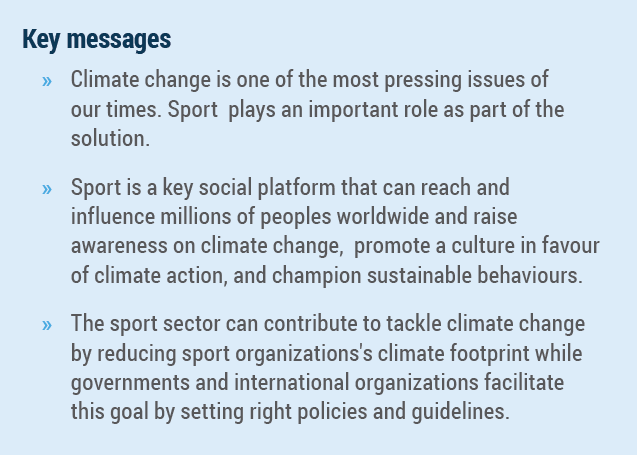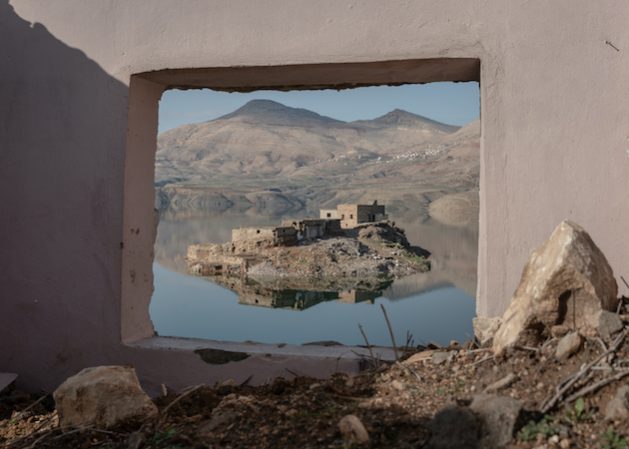Climate change represents the biggest problem in the world due to its widespread, irreversible impacts on the environment and humanity. It threatens ecosystems, economies, and public health on a global scale.
As the planet warms, the delicate balance of ecosystems is disrupted, leading to extreme weather events, rising sea levels, and biodiversity loss. These shifts in climate patterns affect food security, water sources, and the livelihoods of millions. Climate change encompasses more than environmental issues; it’s a multifaceted crisis with economic and social dimensions, contributing to resource conflicts and displacement.
Communities around the world already experience its adverse effects, particularly in developing countries where resilience is low. International efforts to curb greenhouse gas emissions remain critical. Immediate action is essential to mitigate the dire consequences for future generations, making it imperative to understand and address the complexities of climate change.
The Unseen Speed Of Climate Change
The Unseen Speed of Climate Change is setting off alarm bells globally. It’s an unfolding crisis warranting immediate attention. Behind the statistics lie real-world effects, escalating at an alarming rate.
Rising Temperatures And Extreme Weather
Our planet is heating up much faster than we anticipated, leading to severe weather patterns. Here’s what’s happening:
- Heatwaves are striking more often and with greater intensity.
- Droughts ravage crops, causing food shortages.
- Frequent violent storms leave devastation in their wake.
This extreme weather causes harm to all forms of life. It affects our water supply, agriculture, and damages our homes.
Melting Ice Caps And Rising Sea Levels
Oceans are swallowing lands as ice caps melt at an unprecedented rate. Consider these points:
| Glacier Size | Rate of Melt |
|---|---|
| Arctic Ice | Accelerating yearly |
| Antarctic Ice | Over 100,000 tons lost |
Sea levels are rising, threatening coastal communities. Islands might vanish. Cities face inundation.

Credit: www.un.org
Ecosystems At The Brink
Our planet’s ecosystems teeter on the edge of a crisis. Climate change threatens the delicate balance supporting all life on Earth.
Loss Of Biodiversity
Biodiversity is the web of life. It includes all living things, big and small. Every species has a unique function within its ecosystem. Climate change is cutting the threads of this web. Plants and animals are going extinct at an alarming rate. Experts predict a loss of up to 50% of species by the next century;
- Polar bears risk starvation as sea ice melts.
- Bees face habitat loss, threatening crops they pollinate.
- Frogs are dying out due to changing climates.
Ocean Acidification And Coral Bleaching
Our oceans absorb roughly 30% of the CO2 emitted into the atmosphere. This causes ocean acidification. Coral reefs, home to over a million species, get hit hard. They bleach and can die from the increased acidity and warmer waters.
| Year | CO2 Levels (ppm) | Reef Health |
|---|---|---|
| 2000 | 369 | Healthy Reefs |
| 2020 | 413 | Bleaching Events |
Together, loss of biodiversity and ocean deterioration signal a breaking point. Immediate action is necessary to save our ecosystems.
Economic Impact And Global Inequality
Climate change does more than just heat the planet. It hits our wallets and sharpens the divide between the rich and the poor. Farmers in many countries may lose their crops. When farms struggle, food prices jump up. Poor people feel this the most. Many might need to leave their homes. This is a big challenge for everyone.
Agricultural And Food Supply Threats
Changing weather and fierce storms can destroy crops. Droughts and floods hit hard, too. Farmers can’t plan well when the weather keeps changing. This trouble causes food shortages. Our tables might see fewer foods and higher prices. Here’s what this means:
- Less food grown means buying food costs more.
- Crops fail, so farmers earn less money.
- Some foods become harder to find.
Increased Human Migration And Conflict
Rising seas and bad storms can push people from their homes. People who move like this are called “climate refugees”. They look for safer places to live. This can cause crowded cities and more fighting over who gets what. Kids might have to move far from friends. Imagine having to start over in a new school!
| What Causes People to Move? | What Problems Can This Cause? |
|---|---|
| Flooded homes or dry farms | Not enough houses for everyone |
| Looking for new jobs | Harder to find work |
| Wanting a safe place to live | More people in cities means less space to play |

Credit: www.amazon.com
Health Risks On The Rise
Climate change is creating a host of health risks worldwide. As temperatures rise and natural systems alter, human well-being is under threat. Understanding these health risks is crucial for protecting our communities.
Spread Of Disease
Diseases spread faster in a changing climate. Warm conditions can expand habitats for mosquitoes. These insects carry diseases like malaria and dengue fever. Areas once free of these pests now face new health threats.
- Warmer temperatures help pathogens thrive.
- Floods and storms spread waterborne diseases.
- Climate change affects animal migration. This can bring new diseases to humans.
Heat-related Illnesses
Increasing temperatures cause more heat stroke and exhaustion. The very young, the elderly, and those with chronic illnesses are most at risk. Cities experience heat waves more due to the urban heat island effect.
| Group | Risks |
|---|---|
| Children | Dehydration, heat exhaustion |
| Elderly | Heat stroke aggravated chronic diseases |
| Outdoor Workers | Sunstroke, dehydration |
Air Quality
Climate change worsens air pollution. This can result in respiratory problems like asthma. Pollen seasons extend, affecting those with allergies. This impacts outdoor activities and general health.
- Higher temperatures increase ground-level ozone.
- Wildfires, more common now, affect air quality negatively.
- More particulate matter in the air can lead to lung diseases.
Taking Action Against The Inevitable
Taking Action Against the Inevitable means we must fight climate change now. The world is heating up. Seas are rising. Animals are losing homes. Food and water are becoming scarce. We need to act to save our planet. Everyone must help, from big countries to people like you and me. Let’s see what actions are already being taken.
International Agreements And Policies
Leaders around the world know climate change is a big problem. They come together to make promises. They sign big deals like the Paris Agreement. This deal says countries must lower their carbon footprints. They agree to keep the Earth from getting too hot. Check out these key points:
- Lower greenhouse gases: Countries cut down on gases that make Earth warmer.
- Use clean energy: More wind and solar power, less coal and oil.
- Protect forests: Trees help keep the air clean.
- Help each other: Rich countries give money to help poorer countries.
Innovations In Renewable Energy And Sustainability
Amazing new inventions help us use energy from the sun, wind, and water. They don’t hurt the Earth like oil and gas. More people are using these renewable energies every day. Let’s look at a few examples:
- Solar panels on roofs: They turn sunlight into electricity for homes.
- Wind turbines in fields: They make power when the wind blows.
- Electric cars on roads: They don’t need gas and don’t pollute the air.
Businesses are also changing. They utilize materials that are environmentally friendly and do not cause harm to the planet. They recycle more and waste less. This is good for nature and saves money, too.

Credit: www.nytimes.com
Individual Responsibility And Collective Power
Individual Responsibility and Collective Power play crucial roles in tackling climate change, arguably the world’s most pressing issue. Every person can make a difference. When we join forces, our actions become a powerful catalyst for global change. Understanding the balance between personal action and group dynamics is key. It is about what we, as individuals, can do daily. It is also about how we can influence and support each other to make broader changes.
Reducing Carbon Footprint
A carbon footprint measures the amount of greenhouse gases our activities produce. By reducing personal carbon footprints, each person contributes to a healthier planet. Simple steps include:
- Choosing public transport over personal cars
- Transitioning to sustainable energy sources in household settings
- Embracing a plant-based diet or decreasing reliance on meat
- Recycling and reusing products
These actions, when multiplied by millions, have a monumental impact. They send a message to leaders and companies that the public demands eco-friendly policies and products.
Grassroots Movements And Behavioral Change
Grassroots movements start small but grow vast with collective effort. They inspire behavioral change at the community level. Here are ways these movements create waves of progress:
- They educate communities on climate change.
- They advocate for policy changes that reflect environmental concerns.
- They help people adopt sustainable practices in their daily lives.
Collective power is immense. It turns individual voices into a roar that demands attention. Grassroots movements have led to significant policy changes and corporate shifts toward sustainability worldwide.
Frequently Asked Questions For Why Is Climate Change The Biggest Problem In The World
Why Is Climate Change The Biggest Issue?
Climate change represents the biggest issue due to its extensive impact on global ecosystems, economies, and health. Its rapid alterations in weather patterns threaten food security, amplify natural disasters, and result in irreversible damage to biodiversity.
Why Do We Worry About Climate Change?
We worry about climate change because it threatens ecosystems, increases extreme weather events, and disrupts food security. Adjusting to these impacts requires complex and costly adaptations.
How Has Climate Change Affected Your Life?
Climate change has intensified weather patterns, increasing the frequency of extreme events like heatwaves and floods, influencing daily life by affecting health, and food security, and causing financial strain due to higher insurance and utility bills.
Why Is Climate Change Affecting The World?
Climate change is driven by human activities, primarily the burning of fossil fuels which releases greenhouse gases. These gases trap heat in the atmosphere, leading to global warming and extreme weather events that disrupt ecosystems and human societies.
Conclusion
Climate change stands as a formidable challenge of our era. Its impacts stretch far and wide, affecting every living being. By addressing this global issue, we aim to preserve our planet for future generations. Unified efforts and immediate action are the keys to turning the tide.
Together, we can forge a sustainable future.

